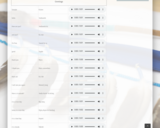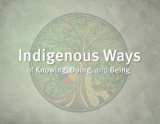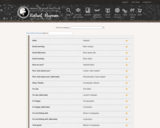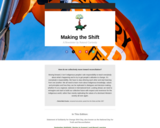
Dene words and phrases with audio. Press play to hear the phrases and practice your pronunciation.
- Subject:
- Indigenous Perspectives
- Material Type:
- Activity/Lab
- Author:
- Prince Alber Grand Council
- Date Added:
- 03/13/2024

Dene words and phrases with audio. Press play to hear the phrases and practice your pronunciation.

This video resource, created for teachers and students in Saskatchewan, offers insights from four cultural groups: Anishinabee, Cree, Métis, and Dene. It includes personal stories that emphasize the significance of the seasons and how they influence community life and traditional practices. You’ll discover reflections on the essential roles of elders and knowledge keepers, as well as the importance of kinship, family, and community connections. The resource also addresses Treaty education, storytelling, traditional foods, ceremonies, land-based learning, along with personal narratives about residential schools. By sharing these stories and perspectives, we enhance our understanding and knowledge as we progress on the journey of truth and reconciliation.

HONOURING INDIGENOUS LANGUAGES Toolkit.
Learn common phrases in:
INUKTITUT
CREE
LUNAAPEEW
MICHIF
MOHAWK
OJIBWE
OJI-CREE

Michif words and phrases with audio.

"Making the Shift" is a monthly newsletter by Natural Curiosity. The September 2022 edition features lots of information and activities related to Truth and Reconciliation.
A few of the Educator Resources include:
- Orange Shirt Day Resources
- National Centre for Truth and Reconciliation Residential School Resources
- Truth & Reconciliation Discussion Guide from Scholastics Canada
- Take Me Outside Indigenous Resources
- Residential School Survivor Stories
- And much more!

tânisi!
itwêwina is a Plains Cree Dictionary.
Type any Cree word to find its English translation. You can search for short Cree words (e.g., atim) or very long Cree words (e.g., ê-kî-nitawi-kâh-kîmôci-kotiskâwêyâhk). Or you can type an English word and find its possible Cree translations. You can write words in Cree using standard Roman orthography (SRO) (e.g., acimosis) or using syllabics (e.g., ᐊᒋᒧᓯᐢ).
The spoken Cree word recordings are courtesy of speakers in Maskwacîs and Moswacîhk. The synthesized word-forms are based on recordings of a speaker from Maskêko-sâkahikanihk.

The University of Regina Press has made a number of excellent resources available online for open access. These resources, developed by Jean Okimâsis include a grammar guide, a workbook, and links to audio resources.
The resource include:
- a grammar guide, available as a PDF for download
- a link to the Language Lab user guide
- a Language Lab Workbook
- a Soundcloud link to Cree Language of the Plains audio sessions
- an Open Access link to a page that has all the above resources available in different formats.
Jean Okimâsis and Arok Wolvengrey also wrote a fantastic resource “How to Spell it in Cree“, which you can download as a PDF. It lays out the rules of a standardized written Cree, but also does important work of addressing the criticisms of standardization. It challenges the notion that we can ever use English to ‘phonetically’ represent the Cree language, champions a specific orthography for Cree, and describes how standardization, rather than destroying or degrading the language, will help ensure Cree continues to survive.